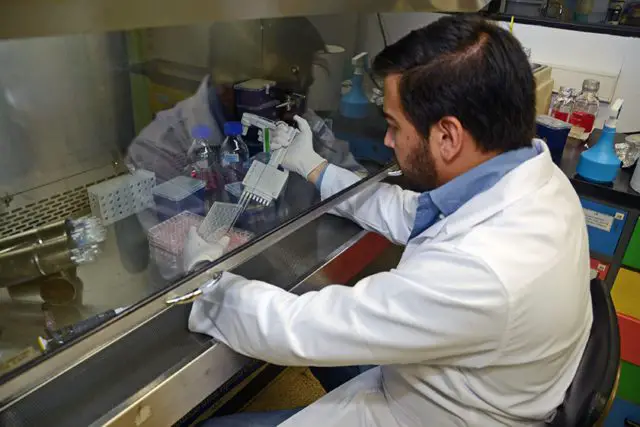As part of its commitment to university development, the Laboratory of Clinical Analysis of the School of Microbiology at the University of Costa Rica opens its doors every year to students, academics, and medical professionals to perform blood tests. Far from being random, these procedures are part of courses and research carried out on and off campus Rodrigo Facio.
Erika Halsband Mainieri was one of 30 Nutrition students who used the laboratory last year for the Nutritional Status Assessment course, where they must formulate their own biochemical profiles, including blood tests. For Halsband, being able to access this type of exam is a priority and appreciates that there is a measure to be carried out within the university.
The schools of Medicine, Nursing, the Laboratory of Biological Tests (LEBI), the Institute of Health Research (INISA), various social action projects, and the Costa Rican Social Security Fund (CCSS) also use the services of the laboratory, which recorded approximately 4,000 analyzes last year.
For the doctor in toxicology, Steve Quirós, coordinator of the Department of Clinical Analysis (DAC), the operation of the laboratory goes beyond assisting other academic units, since he affirms that as a teacher it is imperative that students of microbiology can interact with this type of spaces. “An important interest of the project is to have the laboratory here working so that the students of the race can see and experience how a laboratory works before going to the box”, says Quirós.
This is why the laboratory is also part of the project of Social Action Laboratory Services and Counseling in Clinical Analysis (ED-538), an initiative that aims to offer the university community and general public specialized tests in Clinical Chemistry and Hematology at prices accessible, both for the university community and the national community.

Within the wide range of exams offered, tests such as liver profiles, lipids, cholesterol, triglycerides, proteins, urinary stones, and copper in the tissues can be named.
Most of these tests have a price that goes from around ₡ 6,000 (blood group sampling) to ₡ 50,000 (liver profile). However, both students and officials get a 50% discount on all procedures.
The profits collected are invested in the operation of the laboratory
According to Quirós, who also coordinates the project, the maintenance of a clinical laboratory is expensive since it includes the use of chemical reagents, sampling and refrigeration equipment, which must be periodically reviewed, and the management of annual permits before the Ministry of Health to function legitimately.
The DAC, as an instance of the School of Microbiology, began its operation within the San Juan de Dios Hospital in 1970, so in addition to carrying out the teaching work, some specialized consultations from other state hospitals were attended. Upon passing the department within the university, a new laboratory was established to allow further processing of the CCSS queries, among many others.
Laura Martínez Soto, a student of Microbiology, appreciates the efforts to maintain the laboratory within the university since she affirms that the learning that it provides is not found in the conventional theoretical courses. For Martinez, it is a way to approach reality and to be able to use the equipment you will need in your future professional life.
The use of the laboratory is required for 3 courses within the curriculum of microbiology: Hematology, Clinical Chemistry, and Toxicology.
According to Federico Artavia Esquivel, technician of the laboratory, per semester between 50 and 60 students of Microbiology are received in small rotations of 8 people to try to make the most of the space.
Due to the fact that in the DAC there are specialists at the national level in terms of clinical analysis, the department also offers specialized training on sample processing and quality control at the instance of state hospitals and other laboratories.

